Losing a limb is life-changing, but a hemipelvectomy amputation—where part or all of the pelvis is removed—brings unique challenges. This is not just about physical recovery; the emotional and mental journey is just as profound.
From adjusting to a new body image to rebuilding confidence, patients experience a wide range of emotions. Some days feel overwhelming, while others bring hope and resilience. Understanding these psychological effects is crucial—not just for patients, but also for their families, caregivers, and medical teams.
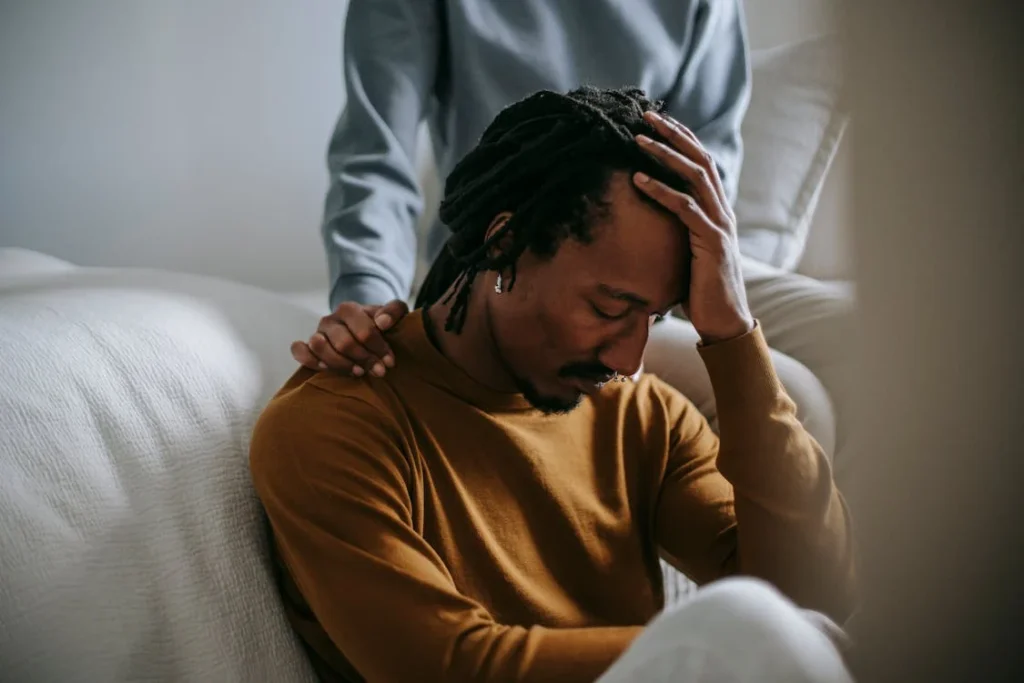
The Emotional Journey After a Hemipelvectomy
The Initial Shock and Emotional Overwhelm
Waking up after a hemipelvectomy can feel like stepping into a completely different reality. Many patients describe an initial sense of disbelief, as if their mind has not yet caught up with what their body has gone through.
This is a normal reaction. The brain takes time to process major changes, and the absence of a part of the body can feel surreal.
Along with this shock often comes a wave of emotions—fear, sadness, confusion, and even anger. Some individuals grieve the loss of their limb, much like mourning a loved one.
It is important to recognize that these emotions are valid. They are not a sign of weakness but a natural part of adjusting to a new reality.
The medical environment itself can also contribute to emotional overwhelm. The sounds of hospital machines, the presence of doctors and nurses, and the constant reminders of surgery can make everything feel even more intense.
During this time, support from medical professionals and loved ones is crucial. Encouraging words, reassurance, and simply having someone listen can help patients feel less alone.
Coping With Body Image and Self-Identity
One of the most profound challenges after a hemipelvectomy is adjusting to a changed body. The body that was once familiar now looks and feels different, and this can lead to a deep sense of discomfort or even a loss of identity.
Many people struggle with their reflection in the mirror. They may avoid looking at themselves altogether or feel disconnected from their body. Some feel anxious about how others will perceive them.
Will they stare? Will they treat me differently? These thoughts can lead to self-consciousness and even social withdrawal.
However, acceptance does not happen overnight. It is a gradual process that involves shifting the focus from what was lost to what remains. Patients who embrace self-compassion and give themselves time to heal emotionally often find it easier to rebuild confidence.
Small steps, such as wearing clothes that make them feel comfortable or engaging in simple self-care routines, can make a big difference.
Rehabilitation plays a crucial role here. Learning to move again, using assistive devices, or even considering a prosthetic solution can bring back a sense of control.
Over time, individuals begin to see their body not as something broken, but as something strong and capable.
The Psychological Effects of Losing Independence
Before surgery, simple activities like standing up, walking across a room, or getting dressed may have been taken for granted. After a hemipelvectomy, even the most basic tasks require adaptation, and this sudden loss of independence can be incredibly frustrating.
Relying on others for help can lead to feelings of helplessness or guilt. Some individuals feel as if they are a burden, even though their loved ones are happy to assist them.
This emotional struggle can sometimes result in withdrawal, where the person avoids asking for help even when they need it.
Regaining independence, however, is not impossible. It requires patience, adaptation, and the right support systems. Occupational therapy and mobility training help patients develop new ways of performing daily tasks.
Assistive devices, prosthetics, and home modifications can also restore a sense of freedom. The key is to focus on what can be done rather than what cannot.

The Mental Health Challenges of Hemipelvectomy
Anxiety and Fear of the Future
Facing a future that looks completely different from what was expected can bring deep anxiety. Questions like “Will I be able to work again?”, “How will my relationships change?”, or “What if I never feel normal again?” can become overwhelming.
These thoughts create a sense of uncertainty, which can be mentally exhausting.
Some individuals also develop a fear of being in public. They worry about how others will react, whether they will be stared at, or if they will be treated differently.
This fear can sometimes lead to social isolation, making it harder to adjust.
One of the most effective ways to handle this anxiety is to take things one step at a time. Focusing on immediate, manageable goals rather than the entire future can reduce overwhelming thoughts.
Professional counseling or therapy can also help, providing a safe space to process emotions and develop coping strategies.
Depression and Emotional Numbness
Depression is common after a major life change like a hemipelvectomy. It can feel like a heavy weight, making even small tasks seem impossible. Some people experience deep sadness, while others feel emotionally numb, as if nothing matters anymore.
A lack of motivation, changes in sleep and appetite, and withdrawing from loved ones are all signs of depression. It is important to recognize these signs early. Depression does not mean a person is weak—it is a natural response to loss and change.
Connecting with a support system, whether it is family, friends, or a mental health professional, can make a significant difference. Talking about feelings rather than bottling them up can lighten the emotional load.
Engaging in activities that bring even small moments of joy—listening to music, being in nature, or creative hobbies—can help bring a sense of normalcy.
The Role of Support Systems in Mental Well-being
A strong support system can be the difference between struggling alone and finding a path forward. Family, friends, support groups, and medical professionals all play a role in emotional healing.
Loved ones may not always know what to say or do, but their presence alone can provide comfort.
Open communication is key—patients should feel comfortable expressing their needs, whether it is for emotional support, physical assistance, or simply companionship.
Peer support can be incredibly powerful as well. Talking to others who have gone through a hemipelvectomy helps individuals realize they are not alone.
Support groups, either in person or online, offer a safe space to share experiences, ask questions, and learn from others who have adapted to life after amputation.
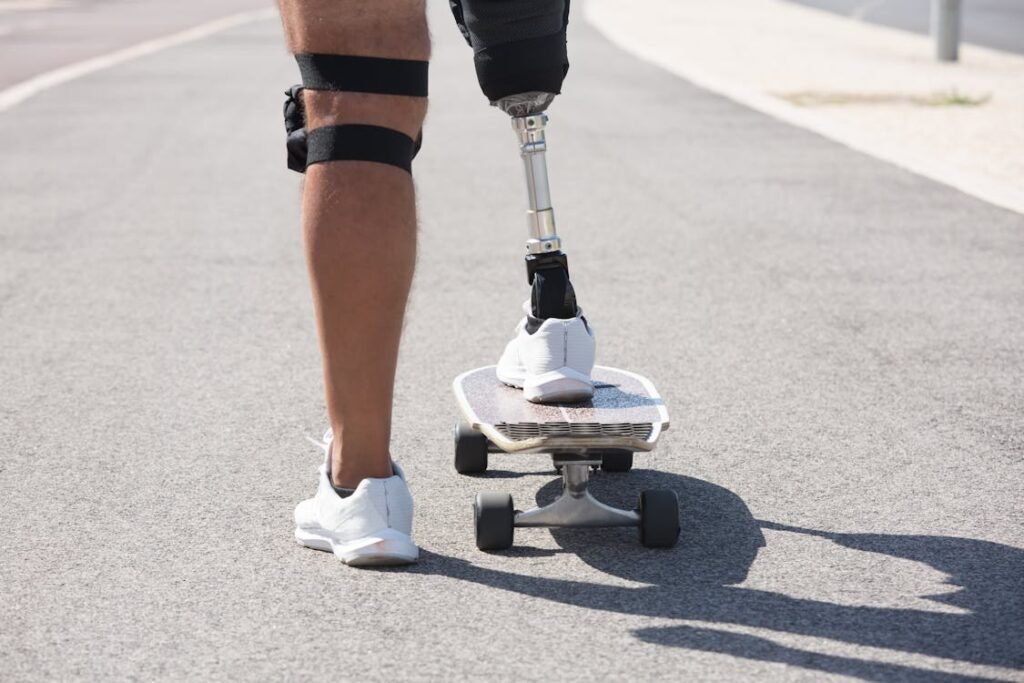
Rebuilding Confidence and Finding Purpose
Accepting the New Normal
Life after a hemipelvectomy does not mean the end of independence or happiness. It means adapting to a new way of doing things, and that process takes time.
Acceptance is not about ignoring the difficulty of the situation but about learning to live with it in a way that allows for growth and fulfillment.
For many, the hardest part is accepting that certain things will never be the same. Mobility, daily routines, and even social interactions may change.
This realization can be painful, but it is also the first step toward healing. The key is to focus on progress rather than perfection.
Patients who embrace small victories often find the adjustment easier. Whether it is getting out of bed without assistance, moving independently with a mobility aid, or completing a personal task without help, every achievement matters.
Celebrating these moments helps shift the focus from what was lost to what is still possible.
Setting New Goals and Expectations
One of the most effective ways to rebuild confidence is to set personal goals. Before surgery, a person’s identity may have been tied to their job, hobbies, or physical abilities.
After amputation, those same activities may seem out of reach, leading to frustration and a sense of loss. However, setting realistic and meaningful goals can bring back a sense of purpose.
These goals do not have to be big at first. Something as simple as improving mobility, engaging in physical therapy, or spending time with loved ones can be an excellent starting point.
Over time, as strength and confidence grow, larger goals—such as returning to work, traveling, or learning a new skill—can become more attainable.
The key is to adjust expectations. Instead of focusing on what cannot be done the same way as before, it is important to explore new ways of achieving goals. For example, an individual who loved running may not be able to run in the same way, but they may find joy in adaptive sports or other forms of movement.
Keeping an open mind allows for new experiences and a renewed sense of fulfillment.
Finding Strength Through Rehabilitation
Physical rehabilitation plays a huge role in emotional and psychological healing. It is not just about learning to move again—it is about regaining control and proving to oneself that progress is possible.
Physical therapy helps individuals strengthen their bodies, improve mobility, and explore assistive devices or prosthetics. Occupational therapy helps with daily tasks, ensuring that individuals can adapt to their new circumstances with confidence.
These sessions can sometimes feel frustrating, especially when progress is slow, but every small improvement adds up.
Gamified rehabilitation programs, such as those offered by Robobionics, make this process engaging and rewarding. By turning physical therapy into an interactive experience, patients are more likely to stay motivated.
These programs focus on improving motor skills, coordination, and adaptability in a way that feels less like therapy and more like a challenge to overcome.
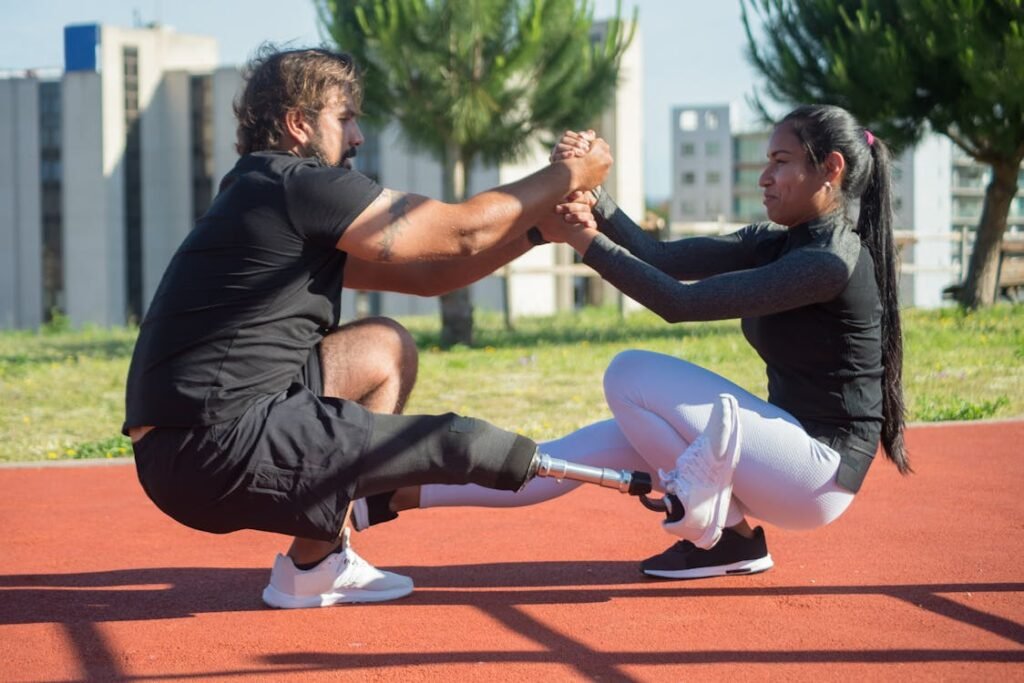
Overcoming Social Challenges and Reconnecting With the World
Facing the Outside World Again
After a hemipelvectomy, social interactions can feel different. Many individuals worry about how others will react to their appearance, mobility aids, or prosthetics. This fear can lead to hesitation when stepping outside or meeting new people.
The reality is that some people will stare, ask questions, or make assumptions. While this can feel uncomfortable, it is important to remember that curiosity is not always meant to be unkind.
Most people are simply unfamiliar with amputations and do not know how to respond. Having a few prepared responses can help ease conversations.
A simple explanation like, “I had a surgery to remove part of my pelvis, and I’m adapting,” can be enough. Over time, these interactions become easier.
Starting small can help rebuild confidence. A short walk outside, visiting a familiar place, or meeting close friends first before attending larger gatherings can make the transition smoother.
The more positive experiences a person has, the more comfortable they will feel in public spaces.
Rebuilding Relationships and Intimacy
Relationships with family, friends, and partners often change after a hemipelvectomy. Some people may not know how to offer support, while others may become overly protective. Open communication is key to navigating these changes.
Letting loved ones know what kind of support is helpful—and what is not—can prevent misunderstandings.
For those in romantic relationships, concerns about intimacy are common. The fear of being seen differently by a partner can create distance, but honesty and reassurance can help bridge that gap.
Physical intimacy is not just about appearance; it is about connection, trust, and mutual understanding. Many couples find that talking openly about fears and expectations strengthens their bond.
Friendships can also shift. Some friends may be unsure how to act, while others may fade away entirely. While this can be painful, it is also an opportunity to build deeper connections with those who remain supportive.
Meeting new people, especially through support groups or shared activities, can lead to friendships that are built on understanding and mutual encouragement.
Returning to Work and Hobbies
Reintegrating into professional life after a hemipelvectomy can be challenging, but it is possible. Some individuals return to their previous jobs with accommodations, while others explore new career paths that align with their physical abilities.
Workplace adjustments, such as modified seating, remote work options, or assistive devices, can make a significant difference.
Hobbies and passions also play a crucial role in emotional recovery. Activities that once brought joy should not be abandoned—rather, they should be adapted.
Many sports, arts, and recreational activities have modified versions that allow individuals with limb loss to participate fully. Finding new ways to engage in meaningful activities can restore a sense of identity and fulfillment.
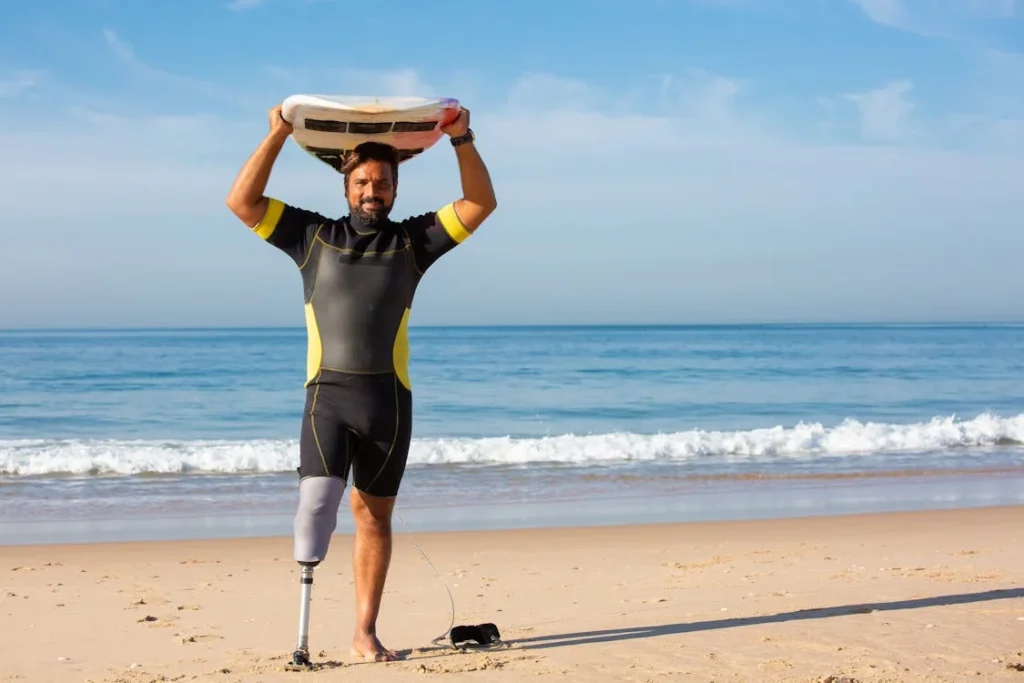
Finding Long-Term Emotional Strength and Resilience
The Role of Mindset in Recovery
Recovering from a hemipelvectomy is not just about physical healing—it is about building emotional strength. The way a person thinks about their experience plays a huge role in how they move forward.
A mindset focused on limitations can create frustration, while a mindset focused on possibilities can open doors to new opportunities.
This does not mean ignoring the difficulties. There will be hard days, moments of frustration, and times when progress feels slow.
But resilience comes from acknowledging those challenges while still pushing forward. Small daily victories, no matter how minor, build confidence and reinforce the idea that life can still be fulfilling.
Many individuals find that keeping a journal helps track progress and emotions. Writing down thoughts, fears, and achievements can provide clarity and serve as a reminder of how far they have come.
Over time, looking back at earlier entries can show just how much has changed and improved.
The Power of Community and Peer Support
One of the most powerful tools for emotional healing is connecting with others who have experienced similar challenges. Speaking with someone who truly understands—because they have lived through it—can be incredibly comforting.
Support groups, whether online or in-person, create a space where individuals can share experiences, ask questions, and learn from one another. These communities provide not only emotional support but also practical advice on adapting to life after amputation.
Organizations like Robobionics offer resources, rehabilitation programs, and peer support networks to help individuals transition into their new lives with confidence. Engaging in these communities can turn feelings of isolation into a sense of belonging.
Celebrating Progress and Looking Ahead
The journey after a hemipelvectomy is long, but every step forward is an achievement worth celebrating. Whether it is standing independently, learning to use a prosthetic, or regaining the confidence to go out in public, every milestone matters.
Looking ahead with a sense of purpose is key. Life will be different, but different does not mean worse. Many individuals discover new strengths, passions, and perspectives they never expected.
The focus should not be on returning to the past but on embracing the future with resilience and confidence.
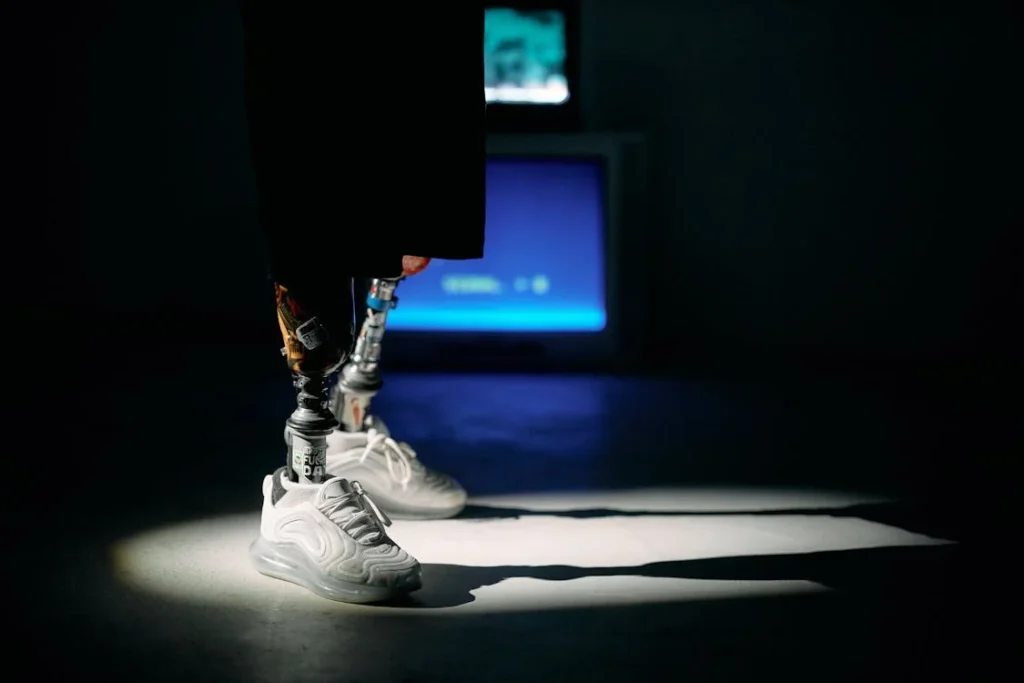
Moving Forward With Confidence and Purpose
Redefining What Independence Means
Independence after a hemipelvectomy looks different, but that does not mean it is out of reach. Many people assume that losing a limb automatically means a lifetime of dependence on others.
While support is important, true independence comes from adapting to new ways of doing things rather than focusing on limitations.
This process starts with small, everyday tasks. Something as simple as getting dressed, preparing a meal, or moving around the house independently can restore a sense of control.
Occupational therapy plays a major role in this, helping individuals relearn daily activities using adaptive techniques.
Mobility aids, prosthetics, and assistive devices are tools that help regain freedom. Some people initially resist using these tools because they feel it makes their disability more visible, but over time, they realize that these devices empower them rather than define them.
Whether it is a wheelchair, crutches, or a custom prosthetic, the right support can open doors to a more independent life.
Finding Meaning After Amputation
A life-changing surgery like a hemipelvectomy often brings deep reflection. Some individuals struggle with a sense of loss, not just of their limb but of their previous lifestyle, career, or hobbies.
However, many also discover new paths that bring purpose and fulfillment.
Some find meaning in advocacy, helping others who are going through similar experiences. Becoming involved in support groups, sharing personal stories, or working with rehabilitation organizations can turn personal struggles into a source of strength for others.
Others explore new interests, whether creative, professional, or recreational. A shift in physical ability does not mean a loss of passion—it simply requires adaptation.
Artists may explore different mediums, athletes may engage in adaptive sports, and professionals may pivot to careers that align with their abilities.
Volunteering, mentoring, or engaging in activities that bring joy can also provide a renewed sense of direction. Purpose is not about what is lost but about what can still be created.
Strengthening Mental and Emotional Resilience
Long-term emotional well-being requires ongoing effort. Mental resilience is like a muscle—it needs to be exercised regularly to stay strong. This means actively working on self-acceptance, challenging negative thoughts, and seeking support when needed.
One of the biggest struggles individuals face is the fear of being judged or misunderstood. The reality is that while some people may not understand, others will be compassionate and supportive.
Learning to focus on the positive interactions rather than the negative ones makes a huge difference in mental outlook.
Self-care should also be a priority. Engaging in activities that promote relaxation and well-being, such as meditation, reading, or spending time in nature, can help maintain emotional balance.
Therapy or counseling can also be a valuable tool in processing emotions and finding strategies to manage stress.
With time, patience, and the right mindset, life after a hemipelvectomy can be fulfilling, meaningful, and rich with new experiences. The journey is not about returning to the past—it is about embracing the future with courage and confidence.
Conclusion
Adjusting to life after a hemipelvectomy is a journey filled with challenges, but it is also one of resilience, adaptation, and growth. The emotional impact is just as significant as the physical recovery, but with the right mindset, support system, and tools, individuals can regain independence and confidence.
Acceptance does not happen overnight, and it is okay to struggle. What matters is taking small steps forward, setting realistic goals, and finding meaning in new ways. Whether through rehabilitation, assistive devices, or connecting with others who understand, there are many paths to rebuilding a fulfilling life.
No one has to go through this alone. Family, friends, therapists, and support groups play a crucial role in the healing process. By embracing change and focusing on possibilities, individuals can move forward with strength and purpose.
If you or a loved one are navigating life after a hemipelvectomy, Robobionics is here to support you with innovative prosthetic solutions, gamified rehabilitation, and a compassionate community. Contact us today to learn more about how we can help you regain independence and confidence in your journey ahead.



